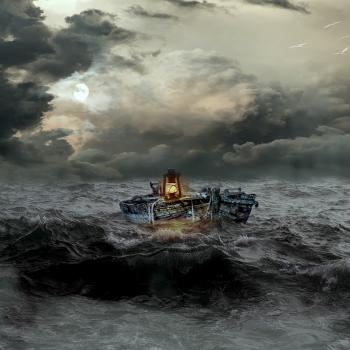Today is International Holocaust Remembrance Day. Long before anyone was talking about “alternative facts,” multiple locations around the world had made plans to host an exhibition this week entitled, “State of Deception: The Power of Nazi Propaganda.”
Why choose to focus on propaganda, rather than on the stories of holocaust victims or the evils of the concentration camps?
From the United States Holocaust Memorial Museum:
This powerful exhibition examines how the Nazis used propaganda to win broad voter support, implement radical programs, and justify war and mass murder. It emphasizes why the issue of propaganda matters and challenges citizens to actively question, analyze, and seek the truth.
This week, the new President of the United States signed an executive order that, among other things, proposed releasing a weekly list of crimes allegedly committed by immigrants. The proposal was included alongside standard calls for enforcement of existing US immigration law. Unlike enforcement measures, however, the publication of a list of criminal accusations singling out a single group of people can only be described one way: it is propaganda. It scapegoats a subsection of the population with a one-sided depiction for the sake of garnering support for punitive actions against unwanted immigrant populations and the cities and people who protect them.
There is a truism online called Godwin’s law: the observation that the longer an online conversation ensures, the more increasingly likely it becomes that someone will bring up Hitler or Nazi Germany. Some have suggested that the interlocuter who makes the comparison automatically “loses” any debate. The questionable validity of this bit of internet silliness aside, my intention here is not to draw any sort of analogy. Trump is not Hitler, the US of the present day is not 1930s Germany.
That said, we should not forget the lessons of the past. One of those lessons is that we should be wary of those who engage in counter-factual revisionism, who attempt to intimidate, coerce, or suborn the press, and those who scapegoat minority groups.
It is easy enough, when looking back at the past, to say, “I wouldn’t have been taken in; I wouldn’t have been so easily intimidated; I would have been one of the people who did something.” We can’t go back and put ourselves to the test to see what we would have done if we’d had the same information and concerns as the average 1940s German citizen. We can’t go back and find out whether we would really have spoken up and agitated for the resettlement of more Jewish refugees in our own nations, setting aside fears of “German infiltration.” Reading history won’t tell us how strong our ethical principles are or what evils we would tolerate for the promise of prosperity and security.
The past may not have all the answers we want. But perhaps, in a contentious age, it has the questions we need.












